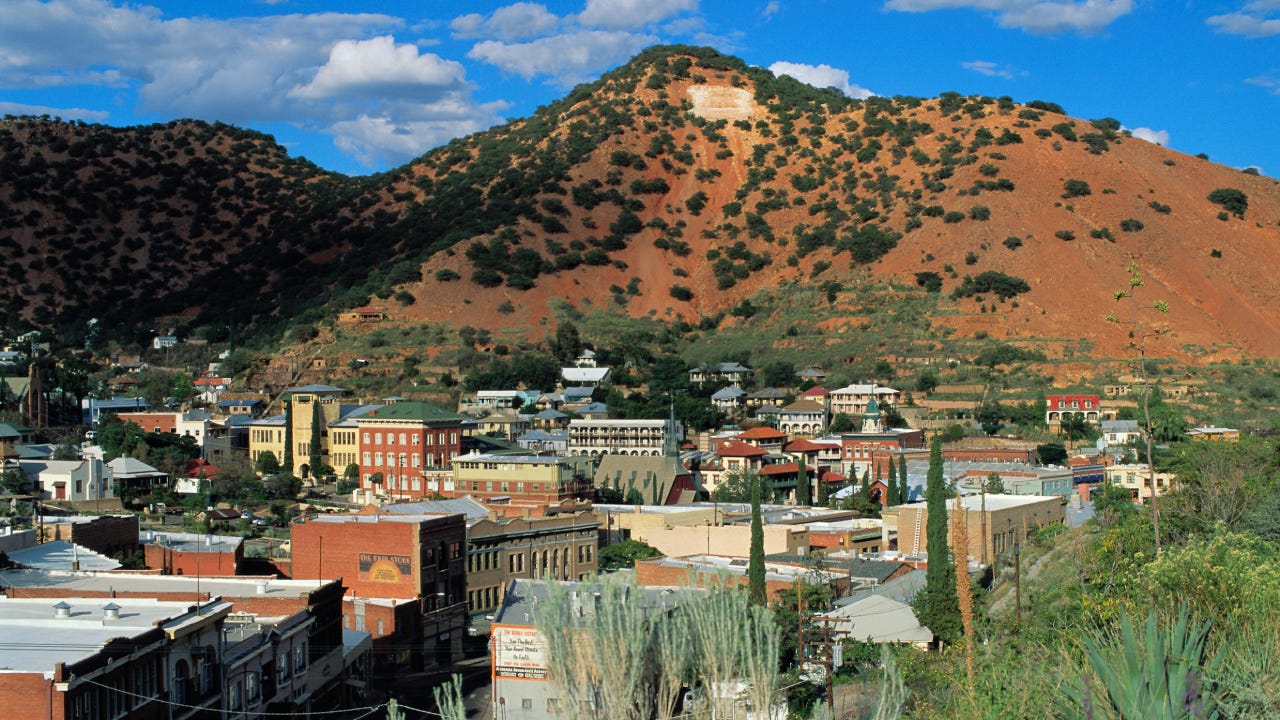Cost to buy a house in Arizona

Pondering a move to the Grand Canyon State? If so, you’re far from alone. Per data from the U.S. Census Bureau, Arizona ranked fourth in the country for net migration in 2022. In fact, migration into the state has jumped 20 percent in the past decade.
As you can imagine, this popularity makes for a rather competitive housing market in the state. While living here can reward you with ample sunshine and low humidity, the forecast may not be as clear when it comes to affordability. Read on to learn more about Arizona housing prices, and the various costs associated with buying a house in this Southwest hotspot.
How much does it cost to buy a house?
According to Arizona Realtors’ December 2023 market report, the median sale price of a single-family home in the state was $352,536 as of the end of the year. That’s an 8.7 percent increase from last year’s median, though the volume of listings and sales both dropped: 12.5 percent and 10.7 percent, respectively.
It’s a big state, though, and housing costs vary significantly based on your specific location. Median prices in small desert towns will be much lower than in the bigger cities and Arizona’s best places to live. For example, the median price in Phoenix in December was nearly $100K higher than the statewide median at $444,785, according to Redfin data, and in Flagstaff it was an even higher $680,000.
It’s essential to focus not just on how prices vary across the state, but on how these variations translate into monthly mortgage payments. As Bankrate’s mortgage calculator illustrates, for a median-priced $352,536 Arizona home, a 30-year fixed-rate loan at 7 percent interest, with 20 percent down, results in principal and interest payments of $1,876. Using the same metrics applied to a median-priced $680,000 Flagstaff home, that figure jumps way up to $3,619.
Down payment
Opting for a substantial initial down payment can reduce your ongoing monthly expenses. Traditionally, a 20 percent down payment was considered standard for homebuyers. That can amount to a significant sum: On a median-priced $352,536 Arizona home, 20 percent comes to more than $70,000.
However, contrary to common perception, it’s not necessarily mandatory to put down a full 20 percent of the purchase price. Some conventional loans require just 3 percent down, if you qualify, which comes to a much less daunting $10,576. FHA loans can require just 3.5 percent or 10 percent down, depending on your credit score, and qualified VA and USDA borrowers may need no down payment at all. However, 20 percent does allow you to sidestep an additional monthly fee for private mortgage insurance, and the more you are able to pay upfront, the less you’ll have to borrow.
If accumulating enough funds for a down payment seems challenging, assistance is available. Arizona provides first-time homebuyer programs for eligible borrowers, and there are options out there even if you’re not a first-timer. And Bankrate’s affordability calculator can help you crunch the numbers to determine how much house you can comfortably afford.
Closing costs, moving costs
Data from Core Logic’s ClosingCorp shows that, among all 50 states and Washington, D.C., the Grand Canyon State sits in the middle of the pack, with Arizona closing costs averaging around 1.2 percent of a home’s sale price. On a median-priced $352,536 home, that comes to $4,230.
But the buyer doesn’t bear the entire burden of this amount. Both buyers and sellers pay their portion of closing costs. Typical closing costs for buyers include loan-related fees and the costs of the home appraisal and home inspection. It’s important to have some cash reserves in your bank account for routine maintenance and potential emergencies, too — lenders like to see that you have enough left over after the purchase to handle the unexpected.
And don’t forget to account for the expense of moving into your new home. If you’re already a local resident, your moving budget may not appear too daunting: The average cost of a local move is $1,698, according to HomeAdvisor. But if you’re among those seeking to relocate to Arizona from another state, or even cross-country, be prepared to spend a lot more.
Homeownership costs
Arizona homebuyers must also take into account the continuous expenses associated with homeownership and maintenance. If the property is within a homeowners association, it’s crucial to allocate funds for HOA fees, which can vary significantly based on the services and amenities offered by the community.
The insurance giant State Farm suggests reserving 1 to 4 percent of your home’s value to address annual home maintenance costs. On a median-priced $352,536 Arizona home, that means you might need to set aside between $3,525 and $14,101 each year to keep your house in good condition.
Even if you navigate the year with minimal maintenance issues — the AC remains functional, and the dishwasher operates seamlessly — don’t forget to consider property taxes and homeowners insurance premiums when working through your budget.
Reducing costs to buy a house
If all these expenses are starting to feel overwhelming, here are some ways to save on your homebuying costs:
- Negotiate seller concessions: Requesting that the seller cover some of your repairs or closing costs is worth a try. Many sellers are open to concessions if it means closing the deal more easily.
- Look at smaller homes: While a spacious five-bedroom estate is ideal, do you really need all that space right now? Consider a condo, which can usually be had for much cheaper and still lets you become a homeowner. According to Redfin data, the median sale price of a condo in Arizona in December was $274,900.
- Consider more affordable locations: Your ultimate dream neighborhood might not align with your current budget, and that’s OK. Broadening your home search to more budget-friendly locations can result in real savings. It doesn’t have to be your forever home, just the right fit for your current needs.
- Exercise patience: Mortgage rates are unlikely to remain at their current high forever. Postponing your home purchase until rates decrease can result in significant savings. For example, according to Bankrate’s mortgage calculator, the difference between a 7 percent interest rate and a 6 percent one on a median-priced Arizona home will save you $186 a month in principal and interest payments each month. That’s more than $2,200 a year.
Next steps
Ready to enter the Arizona housing market? Be sure to enlist the assistance of a seasoned local real estate agent. Each market in the state has distinct characteristics, making it vital to have an expert who knows the area guiding you. A knowledgeable agent can assist you in discovering a home that aligns with your budget and fulfills your family’s requirements, and can also provide support with the paperwork and navigate any challenges that may arise along the way.
FAQs
-
It depends on the kind of mortgage loan you secure. According to Arizona Realtors, the median-priced home in Arizona in December 2023 was $352,536. A 20 percent down payment on a home of that price would come to $70,500, but some mortgages require much lower down payments. In addition, you’ll also need to cover closing costs, property taxes and insurance premiums, all of which vary based on where the home is located.
-
The median-price of a home in Arizona was $352,536 in December of 2023, according to data from Arizona Realtors. The median will differ depending on where in Arizona you’re looking, though — for example, in Phoenix it was $444,785.
-
Closing costs in Arizona average about 1.2 percent of a home’s sale price, according to the most recent Core Logic ClosingCorp data. On a median-priced $352,536 Arizona home, that comes to around $4,230 — however, that amount is not entirely paid by the buyer, the seller pays some of it too. And Arizona does not charge a real estate transfer tax, which is common in many other states.
Why we ask for feedback Your feedback helps us improve our content and services. It takes less than a minute to complete.
Your responses are anonymous and will only be used for improving our website.
You may also like

7 of the weirdest, wildest, oddball ETFs

Are business loans harder to get than personal loans?

What is the maximum Social Security benefit?



